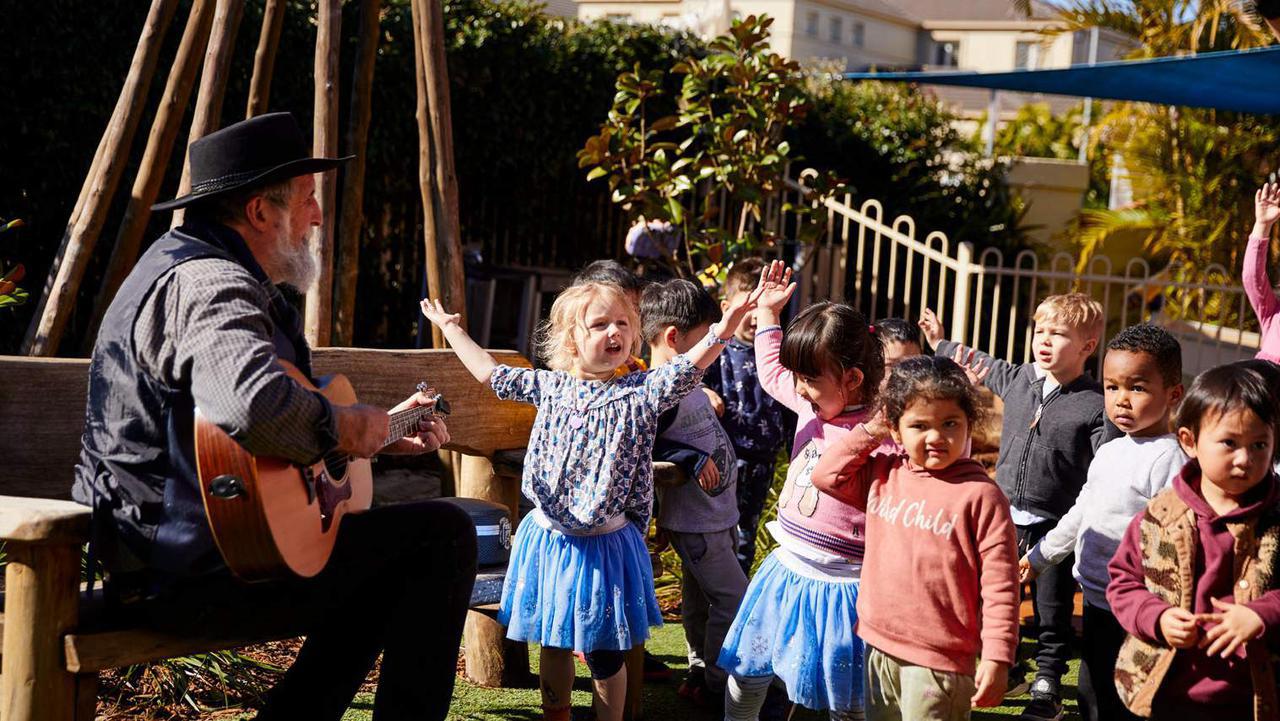
Children thrive with routine and structure in their lives- in a world where they have little control, it gives them a sense of autonomy and security. When children expect what’s coming it also frees their minds for creativity and imagination, so that they can relax into a familiar and comfortable routine and get busy doing the important work of playing and learning.
Structure also helps the child care centre run smoothly, as it assists large groups of children to navigate the often tricky transitions with more ease and efficiency, and is a way for educators to ensure that each desired area of learning is being met and progress monitored.
Having a daily routine that is designed to best meet the needs of the children and the staff, will go a long way in creating a productive and happy child care centre. We have compiled some child care programming ideas and provided some child care program examples to get you started.
General flow of the centre
To start planning a child care program, ideas on what you would like the overall structure of the centre to look like are important. Start with the basic schedule, such as timing of food, naps and outdoor/indoor sessions, and then build on this for optimum child care programming. Examples of this basic schedule could look like this:
| 6:30 - 9:00am | Children arriving and free indoor play |
| 10:00am | Morning tea |
| 10:30am | Structured indoor play/activities |
| 12:00pm | Lunch |
| 12:30pm | Structured outside play/activities |
| 2:00pm | Story and sleep/rest time |
| 3:00pm | Afternoon tea |
| 3:30 - 5:00pm | Pick up and outside free play, late snack |
| 5:00pm - 6:00pm | Storytime and indoor play until close |
Once the overall routine has been decided, you can start planning the specific child care activities, games and learning outcomes you’re aiming for in each time slot. While you can get creative with this, each program should be meeting learning and development aims and national Early Learning Centre guidelines and recommendations.
Areas to cover in your daily program activities include:
- Physical skill development
- Social and interpersonal relation skills
- Speech and language development
- Creativity and art
- Self-help skills and life skills
- Problem-solving, critical analysis and mathematical concepts
- Working as a team and independently
Each room will have a different focus depending on age and ability level, and should also be tailored to meet the needs of individual children.
Babies program
In this age group the program should mainly be focussed on developing a routine and secure attachment with carers, as well as establishing and maintaining feeding and sleeping habits. Carers should use singing, reading and one-to-one interaction to encourage cognitive development, and facilitate age-appropriate activities such as tummy time to assist physical development. Read about activities for babies age 0-6 months here to gather ideas for your babies room.
Toddlers program
The toddlers program should be focussed on developing and practicing self-help skills and daily tasks, and socialising with other children. Through free and structured play, toddlers can practice learning to take turns, collaborate on larger games or play projects, and development of social and communication skills. Plenty of reading and singing encourages language and vocabulary development, so this should also form a part of the program.
At this age, toddlers are also beginning to test their skills with risk-taking play (https://toddle.com.au/thecorkboard/risky-play) and behaviour, so having appropriate outlets for this such as climbing stations, water play and use of age-appropriate tools will help them to explore this in a safe manner. Plenty of outdoor play is encouraged, as it helps to burn their enormous amounts of energy and practice a host of physical and cognitive skills. Check out these child care activities ideas for toddlers to help plan your toddlers program.
Preschool program
This age group is building on skills through the same mediums as the toddler group, with an added focus on literacy, mathematical concepts and science. Develop opportunities through play and child care/family daycare activities that teach these skills in a natural way such as indoor and outdoor play, group activities and opportunities for solo play.
Here are some ideas for preschool child care activities:
- Painting – kids can paint cards for their parents and practice their letters on the inside
- Outdoor scavenger hunt- give kids clues (such as colour and texture based) and a basket, and let them find treasures that match the clues in nature
- Building blocks – get pre-schoolers involved in collaborative castle or village building
- Art and craft – children love activities that involve drawing, cutting, glueing, and they learn a lot in the process
- Music- use rhythm instruments or even pots and spoons to practice keeping time to songs
Get started on creating your ultimate child care program using some of these child care programming examples, and the multitude of easily accessible childcare programming templates, or family day care programming templates, available on the internet. Bring your own personal flair as an educator to your program so that it reflects your child care centre and what makes it special, and sign up to Toddle to connect with potential families and showcase your unique program.